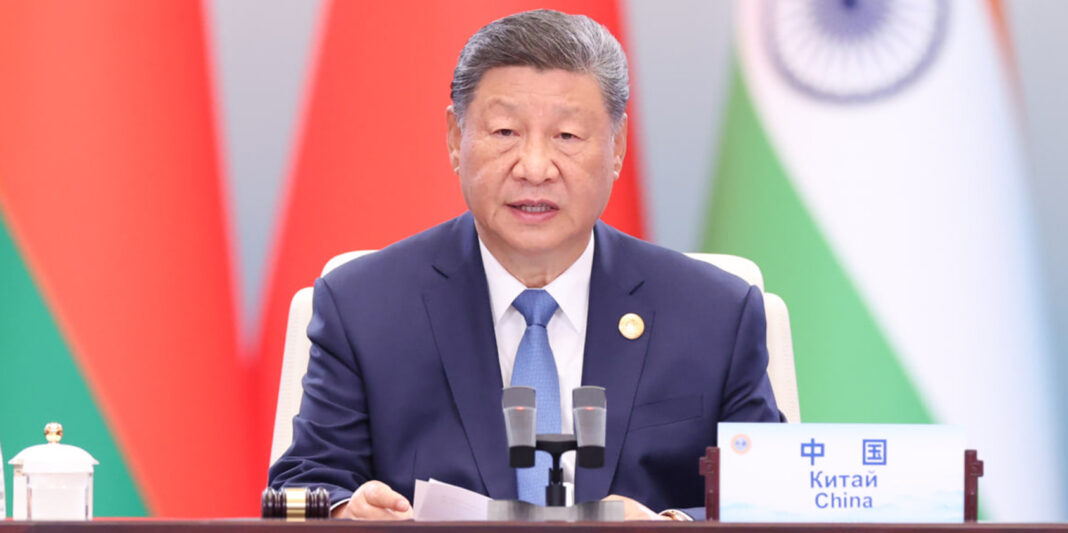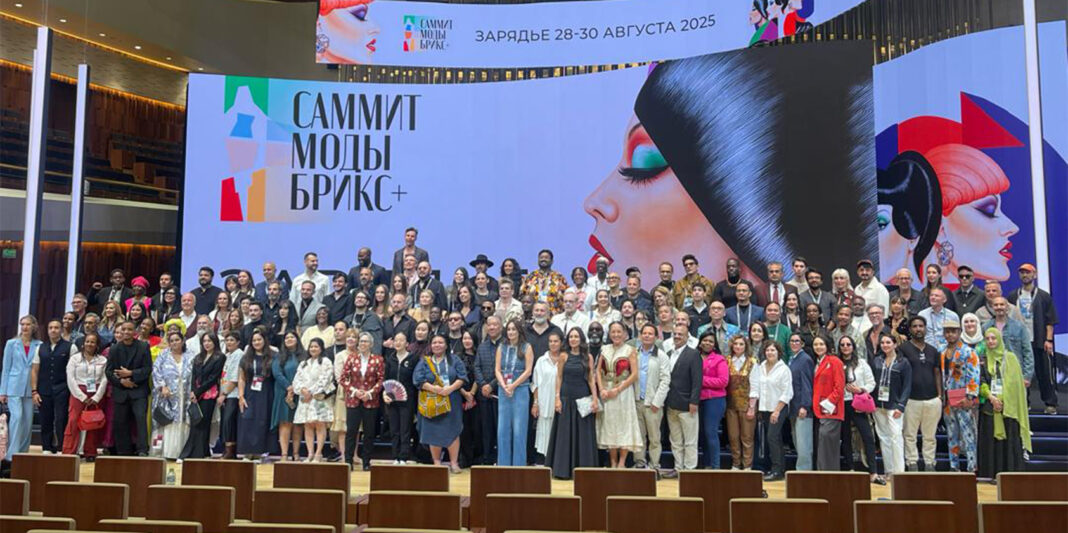Algiers, Algeria
The vibrant city of Algiers is abuzz with optimism and strategic economic discussions as the 4th edition of the Intra-African Trade Fair (IATF 2025) officially opened on September 3, 2025, at the International Conference Center. Running until September 10, this landmark event is assembled under the timely theme “Gateway to New Opportunities” and hosted by Algeria in close collaboration with the African Export-Import Bank (Afreximbank), the African Union Commission (AUC), and the African Continental Free Trade Area (AfCFTA) Secretariat.
The fair marks a significant milestone in Africa’s journey towards economic integration and resonates with a bold vision: transforming Africa’s economic landscape by boosting intra-African trade, deepening investment partnerships, and accelerating industrial growth. Bringing together over 2,000 exhibitors and delegations from 140 countries, along with an anticipated 35,000 professional visitors, IATF 2025 is poised to generate trade and investment deals exceeding $44 billion.
Algeria: The Strategic Host and Emerging Investment Hub
The opening day was marked by the high-profile “Algeria Day,” a special segment focusing on “Algeria: An Emerging Platform for Investment and Trade in Africa,” hosted by the Algerian Agency for the Promotion of Investment (AAPI). The event underscored Algeria’s evolving role as a critical regional investment hub, leveraging its strategic geographic position bridging Africa, Europe, and the Mediterranean, alongside its growing logistical and industrial capabilities.
Algerian President Abdelmadjid Tebboune’s government received senior African officials, presidents, ministers, and business leaders with great enthusiasm — an endorsement of Algeria’s commitment to continental unity and economic development. The presence of these dignitaries highlights the fair’s vital role as a continental event fostering partnership and sustainable growth.
The Pulse of IATF 2025: Innovation, Connectivity, and Green Industrialization
Beyond Algeria Day, the week is packed with several key initiatives designed to reinforce trade and investment networks. Notable among them is the Global Africa Day, dedicated to strengthening Africa’s ties with global partners, alongside trade and investment forums, a mini-summit of African Investment Promotion Agencies, and showcases such as the African Research and Innovation Hub and the Africa Automotive Show.
A significant focus this year is placed on empowering young African entrepreneurs through the AU Youth Startup Program, which offers masterclasses, competitive pitching sessions, and networking opportunities designed to nurture innovation and connect startups with investors and policymakers.
The overarching push towards value addition and green industrialization encapsulates the continent’s forward-looking agenda. With Africa ranking among the fastest-growing economies but still grappling with commodity dependency and climate challenges, the emphasis on sustainable and innovative industrial growth symbolizes not just economic ambition but a commitment to safeguarding Africa’s future.
AfCFTA: Transforming Aspirations Into Reality
The showpiece of IATF 2025 is its embodiment of the African Continental Free Trade Area’s (AfCFTA) promise to unify the continent’s markets into a single economic space. His Excellency Wamkele Mene, Secretary-General of the AfCFTA Secretariat, delivered a powerful message during the opening remarks.
Acknowledging Algeria’s leadership and strategic importance, Mene detailed the profound progress the AfCFTA has already made. Intra-African trade remarkably rebounded in 2024 to $220.3 billion — a 12.4% increase from the previous year — as reported in Afreximbank’s African Trade Report 2025. This growth reflects the increasing confidence in Africa’s integration model.
Mene emphasized the shift in trade composition: African economies are moving away from mere primary commodity exports toward more industrial diversification, including machinery, motor vehicles, electronics, and chemicals. He highlighted the protocols underpinning the AfCFTA, including rules of origin, digital trade, and the Pan-African Payment and Settlement System, which facilitate seamless cross-border trade. The digital trade protocol, notably, opens promising avenues in e-commerce, fintech, and ICT services, long seen as engines for youth employment and economic empowerment.
However, Mene also drew attention to challenges that require collective focus: enhancing physical and air transport connectivity by fully implementing initiatives like the Single African Air Transport Market; ensuring no country or sector is left behind through support mechanisms such as the newly launched AfCFTA Adjustment Fund; mobilizing domestic resources and diaspora investment; and adopting green industrial strategies that integrate renewable energy and climate resilience.
Reflections on Africa’s Economic Liberation: Remarks by Prof. Benedict Oramah
Prof. Benedict Oramah, President and Chairman of the Board of Directors of Afreximbank, eloquently articulated the historical and economic significance of IATF 2025 in his opening ceremony speech. He positioned the fair within the continuum of Africa’s liberation struggles — from political independence in the 1960s to today’s peaceful economic emancipation.
Highlighting Algeria’s role as a symbolic and active host, Oramah acknowledged the country’s economic transformation and its contribution to Africa’s integration agenda. He praised the exceptional organization that accommodated thousands of visitors and exhibitors, crediting Algeria’s recent infrastructure and development.
Oramah recounted inspiring success stories cultivated through IATF platforms — such as Tanzania’s Rufiji dam project, a $2.9 billion effort to improve energy self-sufficiency and agricultural productivity executed by African contractors and financiers; the rise of African innovators like Nigerian drone producer Ndubisi Arinze Eze; and transformative industrial partnerships fostering growth in tourism, industrial parks, and regional trade financing.
Central to Oramah’s message was the concept of economic empowerment as a new “struggle,” where ideas, innovations, and investments replace armed conflict, and where partnerships built on mutual respect drive Africa’s future. He envisioned IATF as a launching pad for young entrepreneurs from all corners of Africa to showcase their creativity and find meaningful support.
African Union’s Vision and Commitment: Remarks by Amb. Selma Malika Haddadi
Deputy Chairperson of the African Union Commission, H.E. Amb. Selma Malika Haddadi, delivered remarks emphasizing the alignment of IATF 2025 with the African Union’s Agenda 2063 — a blueprint for a prosperous, integrated, and peaceful Africa driven by inclusive growth and sustainable development.
She reinforced that this year’s theme — “Boosting Intra-African Trade for a Sustainable Future: Innovation, Value Addition, and Green Industrialization” — reflects Africa’s urgent need to transition from exporting raw materials to being producers and innovators of value-added goods and services.
Statistics cited indicated a steady increase in intra-African trade, which grew by 27% between 2017 and 2023, nearing $200 billion. Notably, manufactured goods dominate intra-continental trade at 45%, compared to 20% for Africa’s exports beyond the continent, underscoring the industrial potential of regional markets.
However, Haddadi noted that despite progress, intra-African trade represents only 15% of total African trade, highlighting untapped opportunities. She called for stronger commitment to translating agreements into action, underscoring the role of cooperation, investment, and reforms to boost connectivity, improve logistics, and foster an enabling business environment.
The African Union Commission’s active role at IATF, including programs such as the Youth Start-Up Pavilion and African Women in Processing Pavilion, underscores a strategic effort to ensure inclusivity and harness the dynamism of Africa’s youth and women entrepreneurs.
The Road Ahead: A Continental Marketplace for Inclusive Growth
As IATF 2025 unfolds, it stands as a powerful testament to Africa’s collective will and capacity to chart its own economic destiny. The fair not only serves as a marketplace for goods and services but also as an incubator for ideas, partnerships, and innovations that transcend borders.
Africa’s future economic transformation hinges on the continued momentum of AfCFTA, strategic investments in infrastructure and industrialization, and the embrace of green and digital economies. Crucially, the inclusiveness of this growth — integrating youth, women, small and medium businesses, and all regions — will determine its sustainability.
Algeria’s role as host symbolizes Africa’s bridging potential: geographically linking diverse regions, economically connecting markets, and ideologically uniting aspirations. As President Tebboune’s government and partners oversee this ambitious gathering, the hope resonates that IATF 2025 will indeed be a “Gateway to New Opportunities” — unlocking jobs, empowering enterprises, and fostering an Africa that is not just independent politically, but sovereign and prosperous economically.
With trade and investment deals expected to surge beyond $44 billion at IATF 2025, the event demonstrates that Africa’s marketplace is vibrant and ripe with possibility. The real victory lies beyond these numbers—in jobs created, industries diversified, innovators inspired, and the dreams of millions of Africans moved closer to realization.
The 4th Intra-African Trade Fair cements its role as a beacon of African integration, a catalyst for industrial and green transformation, and a harbinger of a more inclusive, prosperous, and resilient continent. The journey from Algiers this September will echo across Africa and the world — Africa’s future is open, its opportunities vast, and its time is now.







